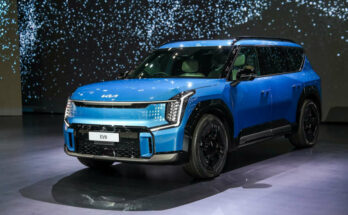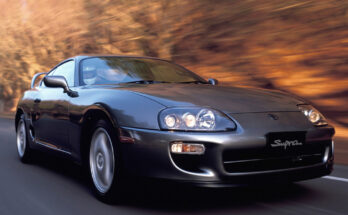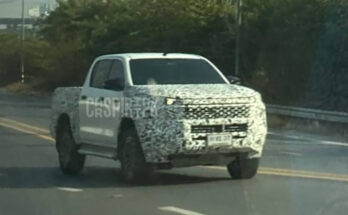As electric vehicles (EVs) are becoming more & more popular, automakers around the world have started to tap other vehicle segments other than conventional sedans, hatchbacks, and crossovers. The global EV expansion has also encompassed the off-road and pickup truck segment.
Chinese auto giant Geely has launched a dedicated EV brand for electric recreational vehicles and has launched the RD6 electric pickup truck already. Ford already has the F150 Lightning EV pickup truck while GM has the Silverado EV in its portfolio.
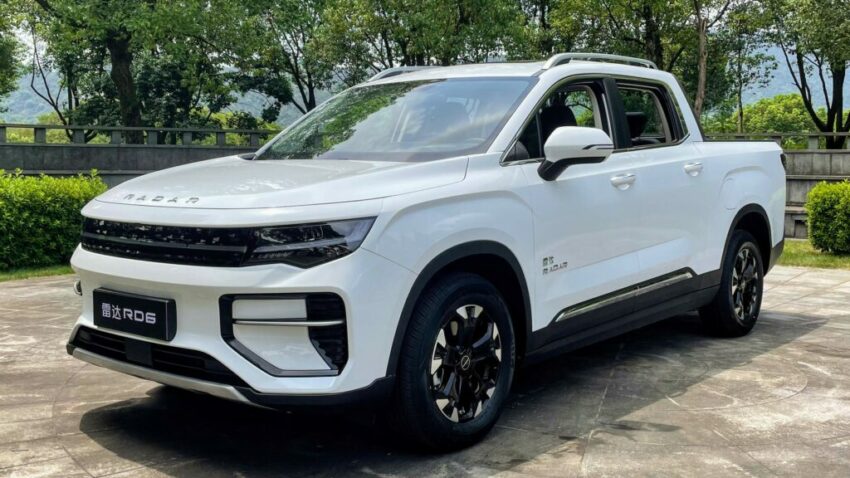
Even many small-scale companies are offering EV conversions to conventional passenger & commercial vehicles including pickup trucks. In Australia, companies like SEA Electric and Roev are making a profit converting Toyota Land Cruisers and Hilux into EVs. Mining companies in Australia have been doing this for years.
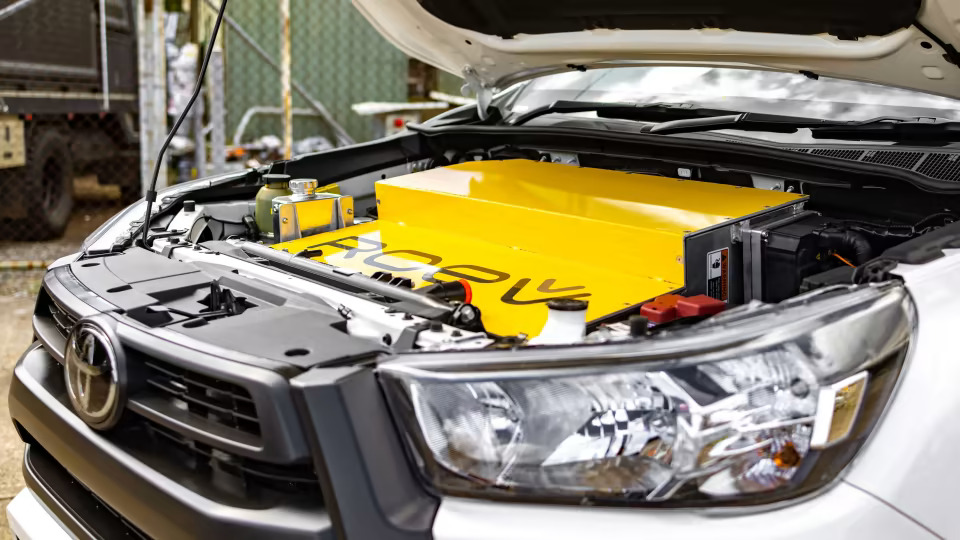
Meanwhile, another company is in the middle of contract negotiations to do a similar deal turning even larger numbers of Land Cruisers into electric pickups. The question is, why can’t Toyota do this to capitalize on such a huge market of electric pickup trucks?
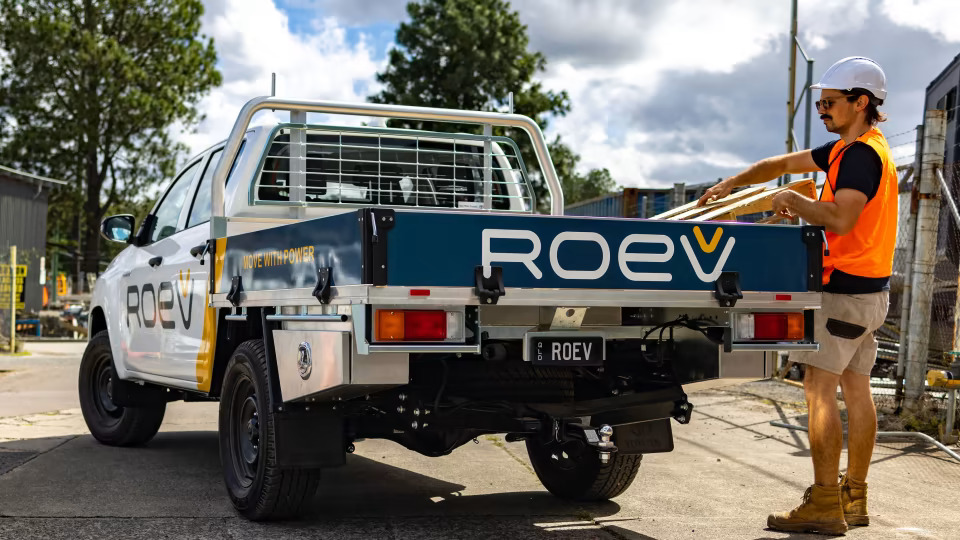
We all know Toyota has been lethargic when it comes to EV adaptation and is being heavily criticized for not having pure-electric vehicles in its product portfolio. Toyota only has the bZ4X electric crossover as the only pure EV in its global lineup. The bZ4X EV after an embarrassing recall followed by a halt in production has now started to reach most parts of the world. The second EV product which is the bZ3 electric sedan built in collaboration with BYD of China is so far restricted for sale in the Chinese domestic market only.
Related: Toyota Unveils Hilux Revo BEV Prototype and IMV-0 Concept in Thailand
However, Toyota showcased a Hilux BEV concept as well as a pickup called IMV-0 in Thailand in December 2022. At the event, Akio Toyoda, the company’s boss reiterated his belief that Toyota can achieve carbon neutrality with hybrid, plug-in hybrid, battery-electric, and fuel-cell vehicles.
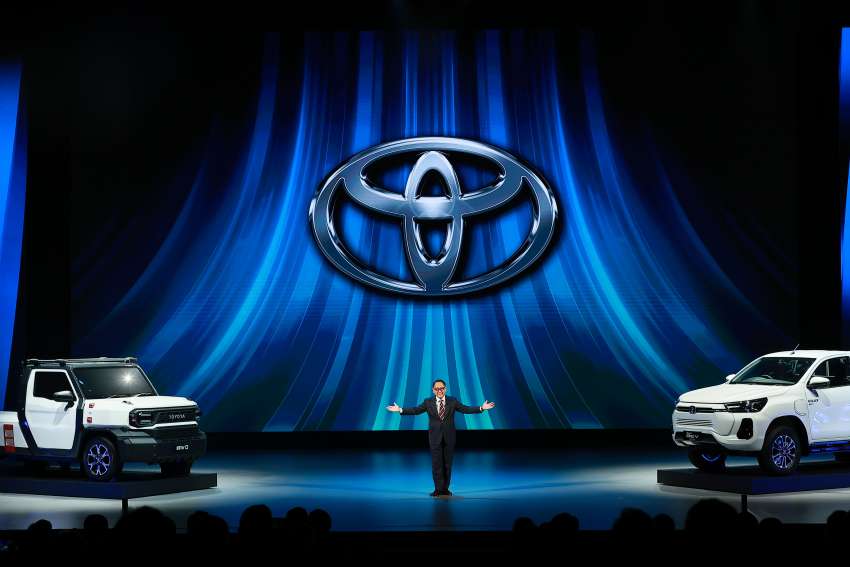
Interestingly no technical specs of both the pickup trucks were revealed, nor was a date set for production for that Hilux BEV concept or the IMV-0. Speaking at the event, Akio said:
“To achieve carbon neutrality, we must remember that carbon is the real enemy, not a particular powertrain. And frankly, BEVs are not the only way to achieve the world’s carbon neutrality goals. At Toyota, we believe in creating a full portfolio of carbon-reducing choices for our customers from hybrid electric vehicles, plug-in electric vehicles, battery electric cars, and fuel cell vehicles. Also, we are pursuing hydrogen fuel options like these GR-Yaris and GR-Corolla hydrogen-powered concept cars. As we work to achieve a sustainable future, I also believe we need to take a holistic approach to carbon neutrality.”
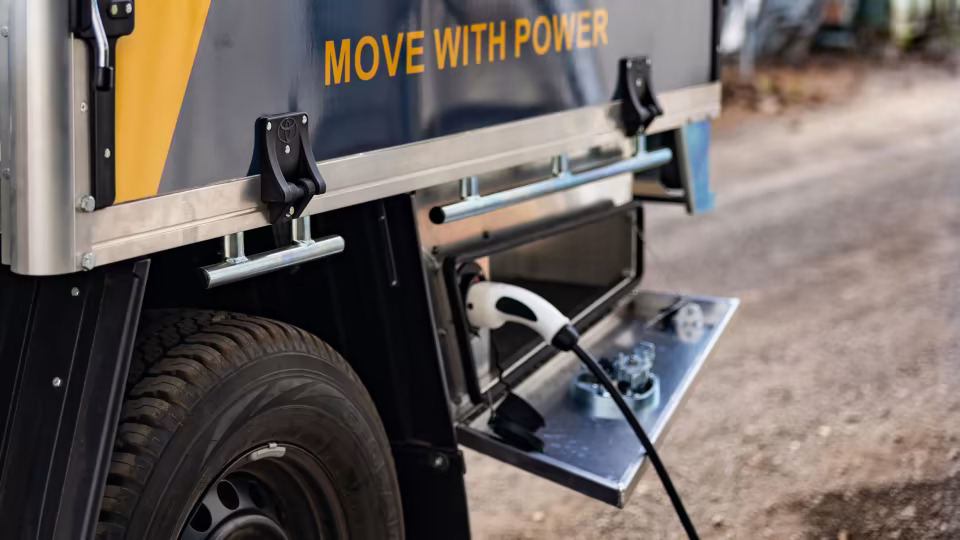
But the small companies working on EV conversions think differently. Their converted vehicles which are targeted towards fleet customers have an 11kW onboard charger, V2G capability, and V2L capability and offer 240 km of driving range, while a longer 360 km of range can be had with the larger battery. According to Roev CEO and cofounder Noah Wasmer:
“With a conversion, you’re not only adding an electric vehicle to your fleet, but you’re also taking a diesel vehicle off the road and preventing many years of future tailpipe CO2 emissions. Australia needs electric utes in massive numbers.”
The company has plans to convert 1,000 vehicles in the first 12 months starting from mid-2023. Meanwhile SEA Electric is teaming up with Mevco to convert 8,500 Toyota Hilux and Land Cruisers over the next 5 years. These converted EVs will replace diesel-powered pickup trucks in the mining industry for a cost of AUD $1 billion. SEA Electric claims that its system has completed over 2.5 million km of real-world use to date, across 8 countries. The company CEO Tony Fairweather says:
“It marks a significant shift to electrified transport for commercial vehicles in the mining industry.”
SEA plans to expand its factory in Dandenong, Victoria, to 8000 sq meters to accommodate the increased production. The plan is to convert 4000 vehicles per year. The batteries will come with a five-year factory warranty. SEA expects health benefits to flow through to workers in the mining industry, as they will no longer have to put up with the heat, fumes, and noise of diesel pickup trucks.
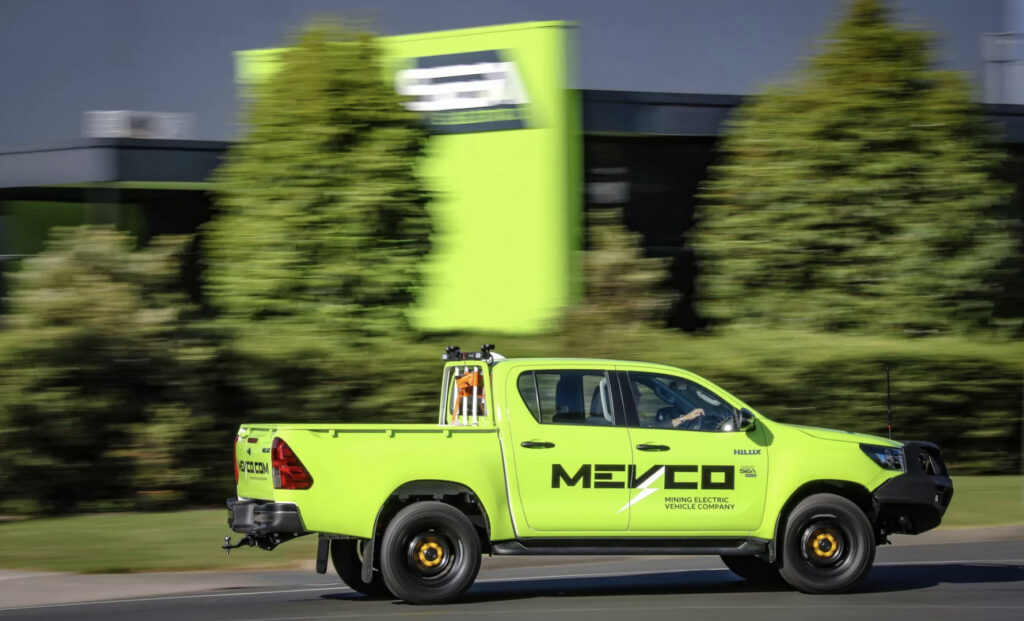
SEA is also active in the US, with orders to convert 1400 Hino trucks, and has also started converting some American yellow school buses to fully electric. The US government has the plan to spend US$5.5 billion to convert 550,000 US school buses by 2030. “The race isn’t between car companies — it’s a race to protect our environment and the future for our children,” Roev CEO Noah Wasmer added.
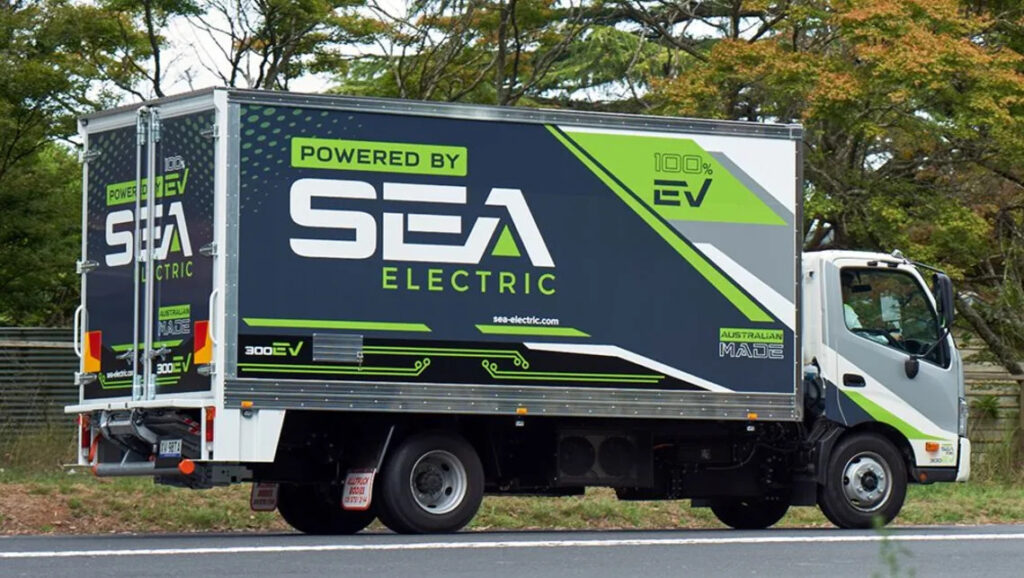
There is an opportunity to do good and also to make a profit. While converted Toyota vehicles are doing the job, let’s see when Toyota decides to do it by itself.
Source: CleanTechnica

A computer animation professional with over 23 years of industry experience having served in leading organizations, TV channels & production facilities in Pakistan. An avid car enthusiast and petrolhead with an affection to deliver quality content to help shape opinions. Formerly written for PakWheels as well as major publications including Dawn. Founder of CarSpiritPK.com

